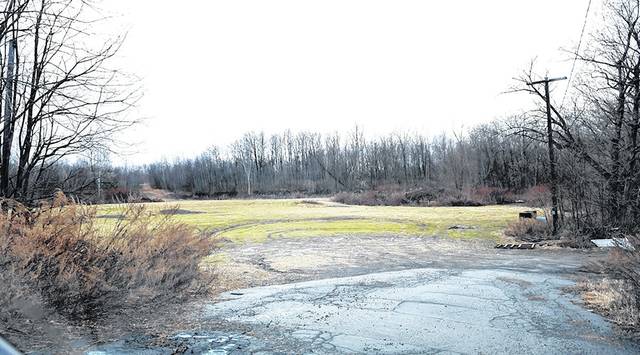Editor’s note: This is the first of a two-part series on the future of the City of Pittston. Next week: City inventory, blighted properties and even more projects.
PITTSTON — Mayor Michael Lombardo and his team hit the ground running as 2020 began ushering in not only a new year, but also a new decade. The team is in the process of laying out plans for the next 10 years.
The Sunday Dispatch recently had a roundtable discussion with Lombardo, Joe Moskovitz, city administrator; Joe Chacke, Redevelopment Authority executive director; Mary Kuna, Redevelopment Authority deputy executive director; Mary Kroptavich, Main Street coordinator; and former city mayor Jason Klush, city treasurer, to discuss the latest plans for the city.
“We’re coming into a new decade; I want to outline where we are headed,” Mayor Lombardo said. “The last two years of my tenure we’ve wrapped up some things that we wanted to get off the table and move forward.”
Department heads are currently working on projects where some will begin this year and others in the future.
“We try to look at the big picture in the city with Mike’s (Mayor Lombardo) vision,” Moskovitz said. “We are all going to work on a comprehensive plan that’s more structured as we go forward. We are a decade down and I think we’ve got a lot of accomplishments, especially for a town this size. We’re still halfway through this process.”
Lombardo believes his team has the foresight and experience to move the city into this decade.
“Now, I think there’s this really good team assembled who can take those pieces and work them through,” Lombardo said.
He admits over the years he has micromanaged many of the projects he has challenged his administration with but is confident with his current team and can step back and let others run with projects.
“That’s a big change for me that I am micromanaging less. That’s not a criticism of anybody before but that’s a compliment to the five people at the table here,” Lombardo added. “There’re others missing at this table like council members, Ron Faraday (facilities manager), the Redevelopment team and so many others.”
The mayor pointed to a 3’ by 4’ photo of the city with a blank tissue paper overlay where he can map out projects over time.
Lombardo also called attention to the Spc. Dale Kridlo Bridge on the map, guiding his hand along North Main Street to the Duryea line.
Streetscaping will continue from the Kridlo Bridge to the Duryea line but the city has to get approval for PENNDOT permits on 57 driveways where permits cost approximately $2,000 per driveway.
“PENNDOT does not make it easy,” Chacke said. “A lot of engineering work has to be done.”
“That’s $150,000, do the math,” Lombardo chimed in. “This is the most expensive design part of streetscape and $150,000 is real money.”
Lombardo has plans for a sports complex behind the Patriot Car Wash tentatively complete with tennis courts, soccer fields and the continuation of the Heritage Trail, connecting Pittston with Duryea.
“We see the junction as a great space to do something,” Lombardo said. “It’s a great solid section of town and it’s the most secure neighborhood.”
“We have a lot to do there; not to say we don’t have a lot to do with other sections of the city, but this is almost a project in itself because of the huge size of the land,” Lombardo said. “I’m pretty excited about it and we are going to work on laying out some projects in that zone.”
One project that will be addressed in the immediate future is the canister project on Main Street.
The project consists of former cargo canisters converted into housing that will be installed next to Merle Norman Cosmetic Studio, across the street from the Tomato Festival lower lot.
“I saw cargo containers repurposed in California and took the idea and morphed it into a way that it could work here,” Lombardo said. “We came up with some concepts and we think they can work here.”
Mary Kuna, who has been in contact with contractors for the project, has led the canister project.
“Mike (Lombardo) had an idea, Joe (Moskovitz) and I figured out the best way to approach this was to create a Redevelopment Corp.,” Kuna said. “It’s a standalone from the Redevelopment Authority with its own board members. The Greater Pittston Redevelopment Corp. is doing the project.”
According to Kuna, a company out of New York City with a home office in North Carolina has been hired to do the pre-fab construction offsite and will deliver the product onsite.
“Every two or three weeks, we Skype (video conference call) with an architect out of Denver and a structural engineer out of Texas and the company from North Carolina to pull this all together,” Kuna added.
The first floor container to be laid will be a 276 sq. ft. coffee shop with additional outdoor seating. The second floor container will be a one-bedroom apartment with parking access from the alley behind the structure, Kuna said. The apartment will be a rental through the newly formed Greater Pittston Redevelopment Corp.
“We’re finishing up the design and they will just bring it here and drop it into place, essentially, and that will happen this spring,” Kuna said.
“What’s really cool is we have funds in place and what Mary has been able to do is be cognizant of those funds because, for us to start from scratch, is to spend half the budget on design.” Lombardo said. “Why reinvent something that has been done successfully before? It’s about achieving ends. We want to be quick at cranking out good products.”
The canister project has been budgeted at $300,000.
“Mary has done a great job in developing this program with these companies and has given these companies a hard number and they met it,” Moskovitz said.
Kuna said the manufacturing company has been excited to see the project through because it is the smallest mixed use building it has done in the United States.
Lombardo is excited about this partnership with the container company in looking forward to using the model for further projects in the future.




